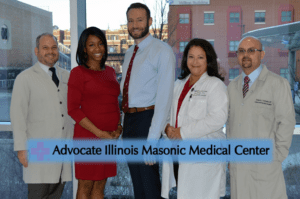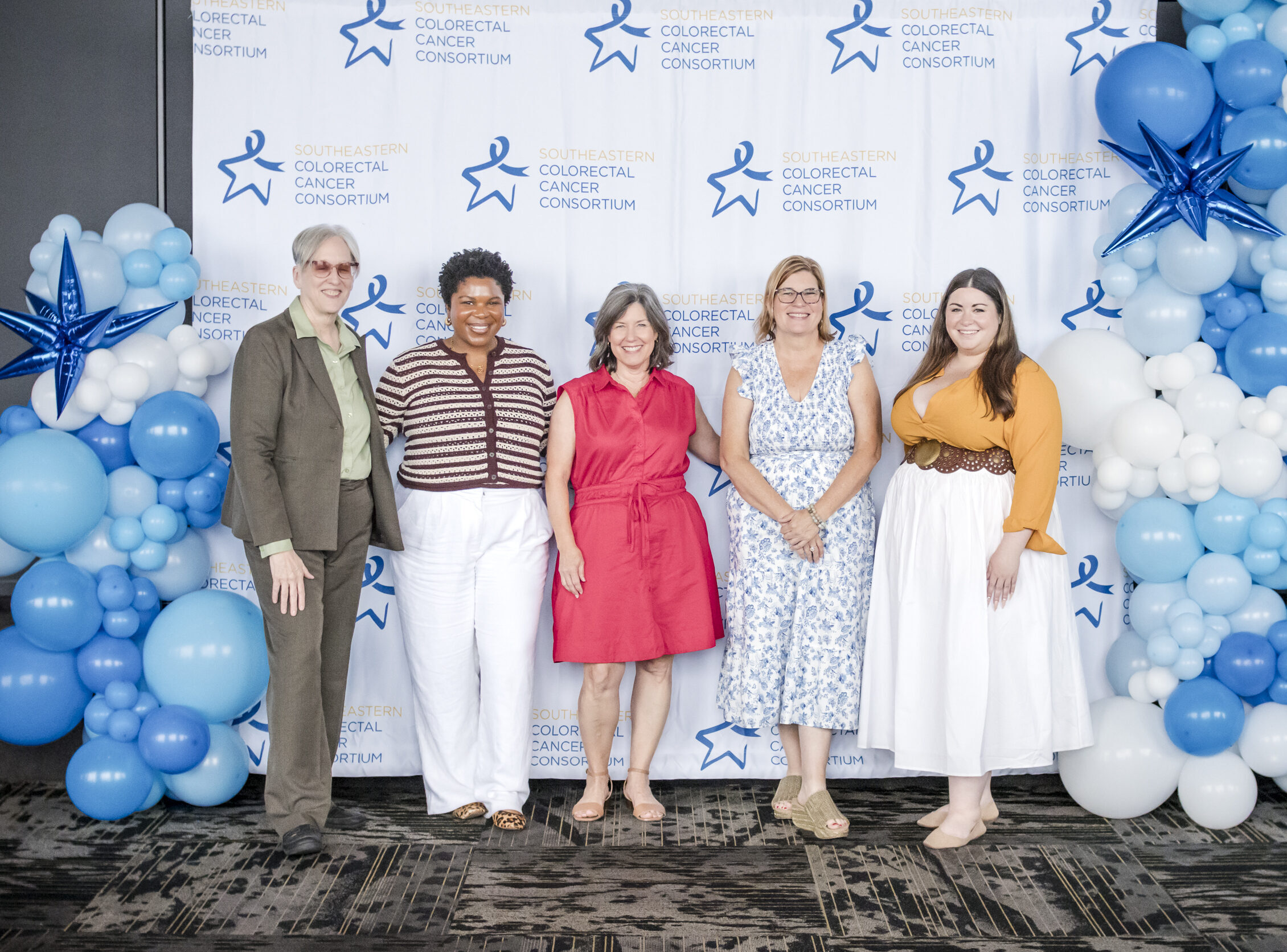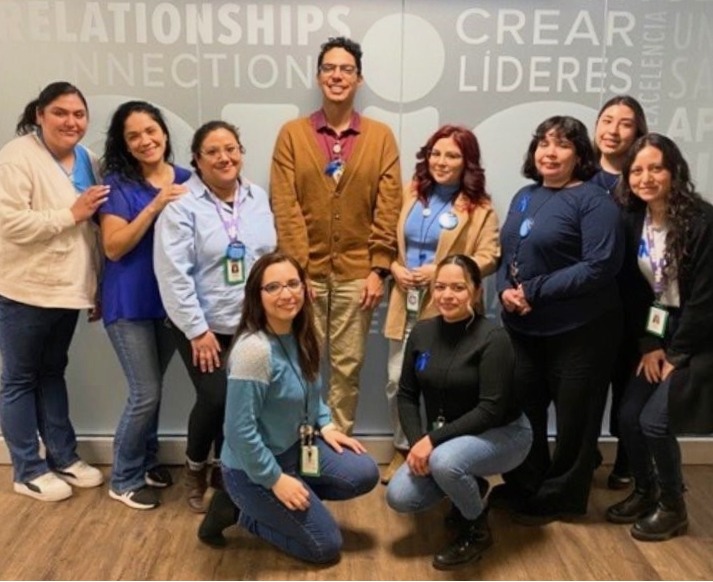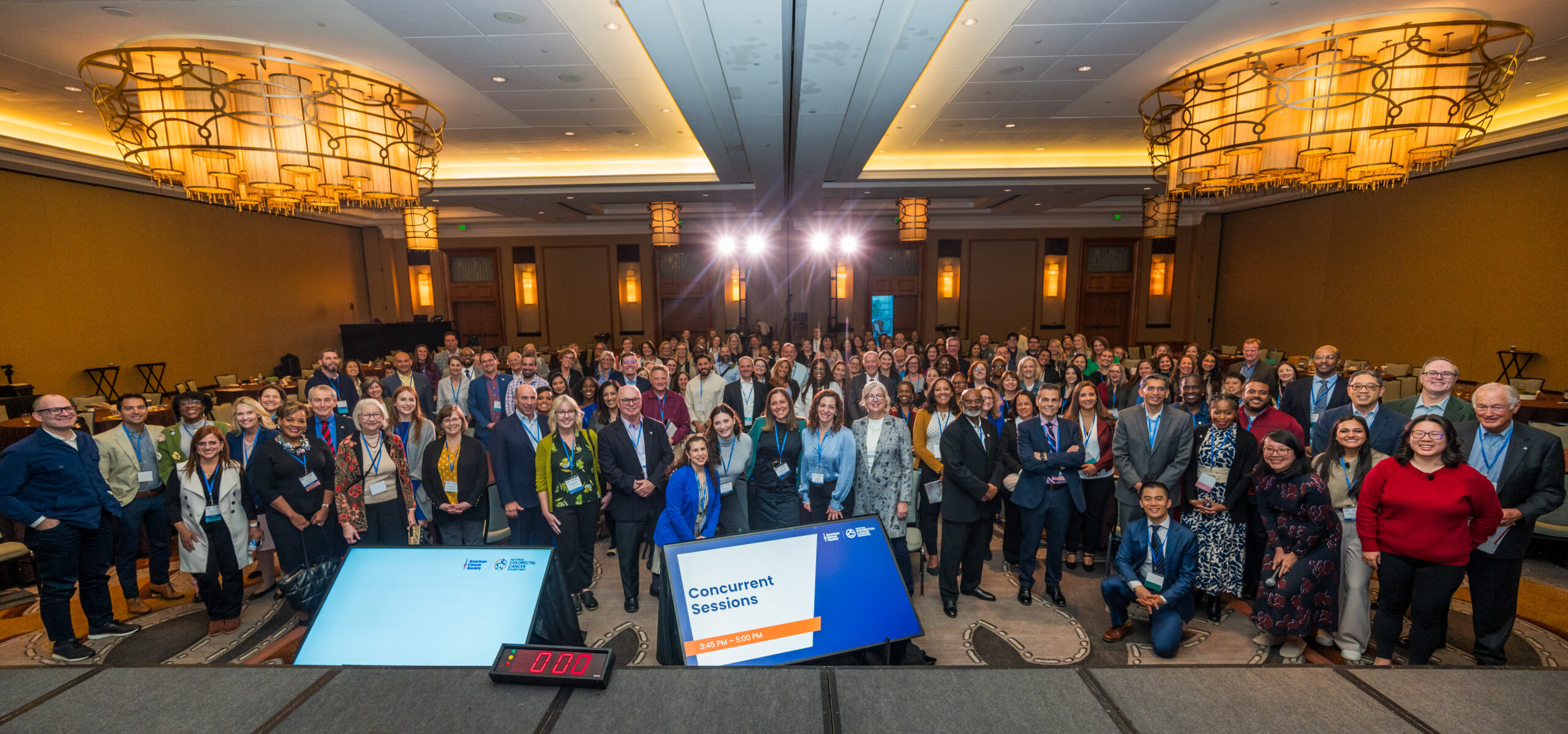Interview with Advocate Illinois Masonic Medical Center—Grand Prize Recipient of the 80% by 2018 National Achievement Award
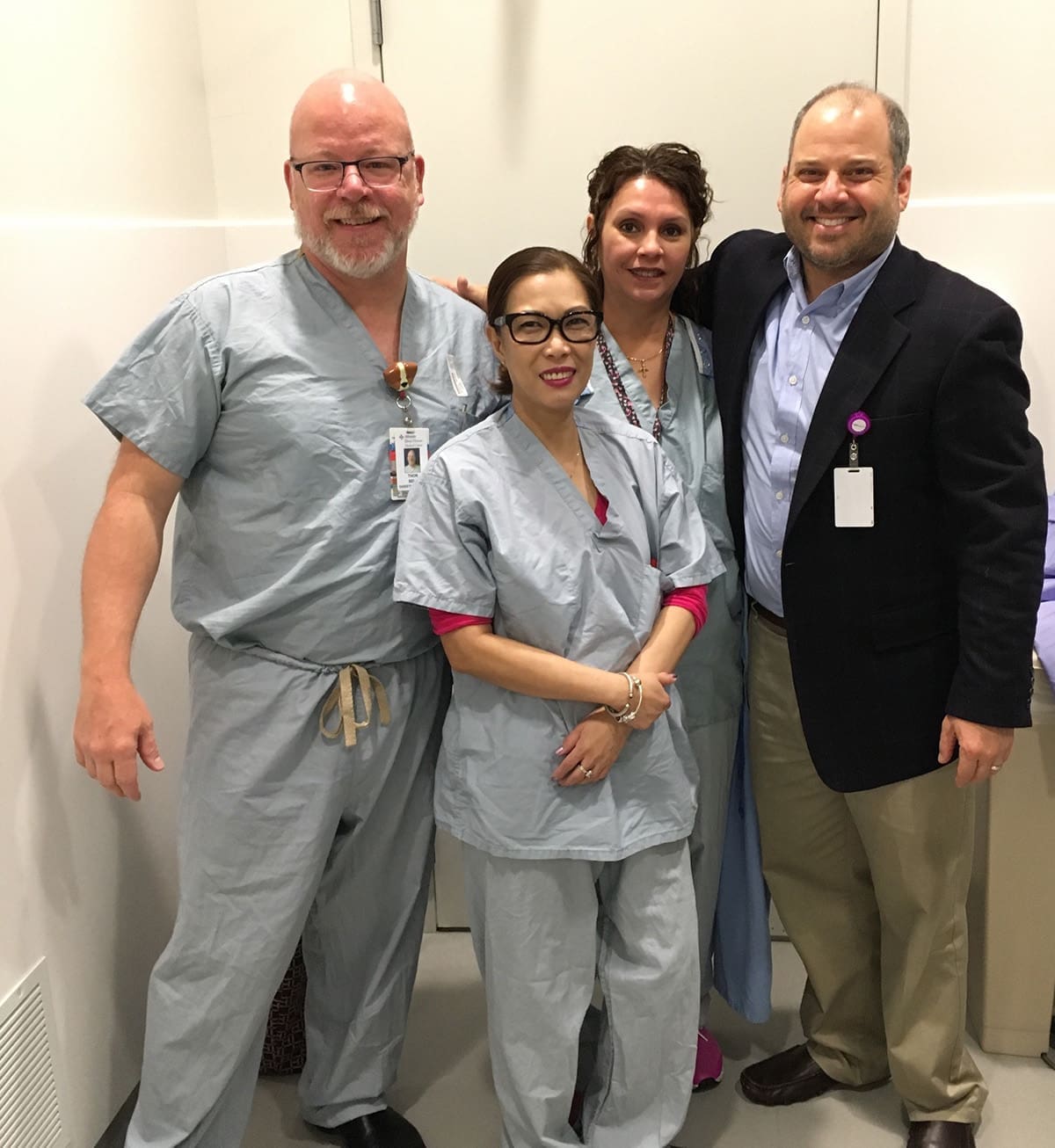
February 28th, 2017 :: Author: Andrew Albert, MD
On February 1, 2017, Advocate Illinois Masonic Medical Center became the Grand Prize recipient of the 2017 80% by 2018 National Achievement Awards, a program designed to recognize individuals and organizations who are dedicating their time, talent and expertise to advancing needed initiatives that support the shared goal to regularly screen 80% of adults 50 and over by 2018.
Dr. Andrew Albert is Medical Director of Digestive Health at Advocate Illinois Masonic Medical Center and Advisor to the NCCRT 80% by 2018 Hospital and Health System Initiative. He grew up in Hewlett, New York and attended Brandeis University after high school. He went on to George Washington University School of Medicine to complete his MD and MPH degrees and was subsequently appointed Associate Chief Resident at Boston Medical Center. He went on to complete a Gastroenterology fellowship at Loyola Medical Center and was selected to participate in the University of Chicago’s inflammatory bowel disease program. He is Board Certified in Gastroenterology and has lectured extensively within the community. Connect with Dr. Albert on Twitter at @DrAndrewAlbert.
Hi, Dr. Albert! We’re excited to feature your work on the 80% by 2018 Blog. Can you tell us a little about yourself and how you ended up working on colorectal cancer screening?
I’ve been an attending gastroenterologist for 10 years and have a passion for colorectal cancer screening. As a gastroenterologist, I perform colonoscopies on a daily basis, but there was one day a few years ago when I had to look three patients in the eye and share the news that they were facing colorectal cancer, a disease that in many cases can be caught early, and sometimes even prevented, with routine screening. I wanted to do something about it, so I started providing ongoing education for physicians at my hospital with a lecture series during National Colorectal Cancer Awareness Month. Over time, I started participating in community health fairs and was called on to represent the hospital on TV when we had the opportunity to share a call to action to get screened with the local community. But my role as a colorectal cancer screening advocate really kicked into high gear when we learned about the 80% by 2018 initiative and enthusiastically signed the pledge. This is when our team came together to rally toward this important goal.
Tell us a little bit about Advocate Illinois Masonic Medical Center.
Advocate Illinois Masonic Medical Center, located on Chicago’s North Side, is one of the state’s largest nonprofit medical centers. The hospital is part of Advocate Health Care’s 13-hospital network, which serves 3.4 million patients at over 250 sites of care. Advocate Illinois Masonic is a 408-bed teaching hospital, and our 900 physicians conduct over 180,000 outpatient visits each year. We’re a city hospital, which means we treat everyone that walks through the door–regardless of insurance status. Our patient population is incredibly diverse: the communities we serve range from wealthy residents along Chicago’s lakefront to areas where over 20% of the population is living below the poverty level. 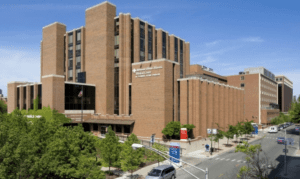 Advocate Illinois Masonic is surrounded by academic medical centers in all directions, but we’ve been able to compete and succeed in this competitive landscape.
Advocate Illinois Masonic is surrounded by academic medical centers in all directions, but we’ve been able to compete and succeed in this competitive landscape.
We’re proud to share that our cancer treatment program has been accredited by the American College of Surgeons Commission on Cancer and that we’ve been ranked one of Chicago’s Best Hospitals by U.S. News & World Report for the past five years.
When and why did Advocate Illinois Masonic Medical Center decide to focus on increasing colorectal cancer screening?
Our hospital had been increasing our focus on colorectal cancer screening for some time, but starting in 2014 a number of factors came together to push this focus to the next level. First, we learned that Advocate Illinois Masonic was not meeting the standards for screening set under our new structure as an accountable care organization (ACO). Our screening rate in 2014 was approximately 25%. Not only were we not meeting the ACO standards, we were not meeting the needs of our community. At that time, Advocate Illinois Masonic had recently created a service line leadership infrastructure to progress the goals of the Center for Digestive Health we have today. This includes an Administrative Director, Lab Manager, Medical Director, Surgical Director, and RN navigator. With the help of Jessica Smith and Meg Fischer of the American Cancer Society in Chicago, we began implementing changes to increase our rates. Then, in 2015, Jessica brought the 80% by 2018 initiative to our attention. We enthusiastically signed the pledge, and were so fortunate to have Dr. Richard Wender, Chief Cancer Control Officer of ACS and Chair of the NCCRT, come and speak to staff from across the 13-hospital network. This is when the hospital truly embraced a focus on colorectal cancer screening, from administrative staff all the way up to senior level leadership, and we doubled down on our efforts.
What activities and systems changes did you implement, and how did you choose them?
We started looking closely at things we could do to not only increase our patients’ willingness to get screened, but to also make sure they were well supported from the moment they were recommended screening and through all necessary appointments and diagnostic workups. 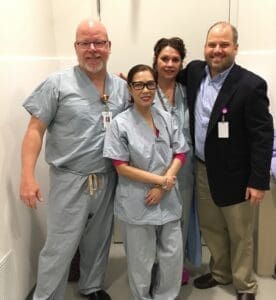 We decided to build a fully navigated Direct Access Screening Colonoscopy (DASC) program. We mobilized partners from surgery, gastroenterology, hospital administration and other departments to design the program, which allows primary care and specialty providers to refer patients directly for colonoscopy to the hospital, creating seamless access to screenings. Patients can also contact the program directly. As part of the program, nurse navigators schedule exams, review instructions with the patients, and follow up with patients to share the results. This helps minimize confusion and gives patients a point person to go to with questions. We also started offering appointments on Saturdays to make it easier for patients that have trouble taking off work during the week. Our focus has been on reducing barriers and identifying patients who have not been screened in the past.
We decided to build a fully navigated Direct Access Screening Colonoscopy (DASC) program. We mobilized partners from surgery, gastroenterology, hospital administration and other departments to design the program, which allows primary care and specialty providers to refer patients directly for colonoscopy to the hospital, creating seamless access to screenings. Patients can also contact the program directly. As part of the program, nurse navigators schedule exams, review instructions with the patients, and follow up with patients to share the results. This helps minimize confusion and gives patients a point person to go to with questions. We also started offering appointments on Saturdays to make it easier for patients that have trouble taking off work during the week. Our focus has been on reducing barriers and identifying patients who have not been screened in the past.
More recently, we secured grant funding to offer fecal immunochemical tests (FITs) to patients who would otherwise be unable to afford screening. We are distributing the FITs to local Federally Qualified Health Centers (FQHCs), and Advocate Illinois Masonic’s charity care program provides follow up colonoscopies for the patients that get a positive result. We also continue to speak at community events and health fairs focused on our LGBTQ and Latino populations through our HispanoCare Program.
Watch this short video to see Digestive Health doctors and staff address patient concerns to break down barriers to screening.
What success have you seen? How did you measure that success?
In less than three years, we’ve increased our mid-year screening rate from 25% to 60% in our 50-65-year-old patients, and from 17% to 70% among patients ages 65 and older. What’s truly exciting: our end of the year rates are nearing 80% among patients ages 65 and older! While the DASC program improved our screening rate, it has also brought additional benefits, including: colonoscopy wait time shrunk from over two months to two weeks, we’ve decreased loss to follow up, our adenoma detection rate has improved and patients are happier with the more efficient, streamlined and patient-centered care. In just one and a half years, we’ve navigated 800 patients through the program, resulting in the diagnosis of seven unanticipated cancers. We’re finding cancers that might otherwise have gone undiagnosed until a later stage.
And our providers are happier, too. Our cross-disciplinary approach to designing the DASC program broke down some of the silos that you often see between departments. We’re all invested in the cause and share in the satisfaction that we’re taking better care of our patients.
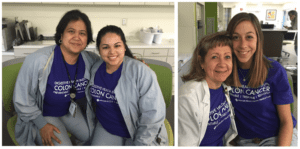
Are there plans to implement these changes across the Advocate Health Care system?
Our work began as an Advocate Illinois Masonic initiative, but we’re now working across Advocate Health Care’s 13-hospital system to implement changes system-wide. We have the full support of Advocate Health Care’s executive team, and they’re even going so far as to raise the system wide goal toward 80%. My team is being asked to share lessons learned across the hospital network, codifying Advocate Illinois Masonic’s success as the model for the entire system. Dr. Joaquin Estrada, a colorectal surgeon and Digestive Health Surgical Director, will often say: “We’re going to figure it out and we’re going to do it well; it just has to be done. Let’s take the impossible and make it possible.”
But we don’t want to stop there. We’re also helping others; whether hospitals or health systems to strive for 80% and identify strategies that are unique to their individual populations. Our Administrative Director, Jequeatta Upton Smith will often say, “A rising tides floats all boats.” We want to do everything we can to help others succeed. By working together, we can stomp out this disease.
What lessons learned would you share with others that are working to increase colorectal cancer screening in hospital settings?
Results don’t come overnight. It takes a lot of patience, ongoing communication, and engagement from all stakeholders to be a true success. Dream big and engage as many people as possible in your efforts, and never be afraid to think outside the box to try something you’ve never done before. Every day we love going to work because we feel like we’re doing the right thing. You never know what will become a wildfire and spread.
Were there tools, trainings or resources that you found helpful?
Working together with Dr. Wender, Jessica and Meg from ACS has been a huge help. They helped us identify places where we could make early gains, which helped us get buy-in to devote more staff and resources to the effort. They’ve spoken at hospital meetings and have continually brought new ideas to the table. This personal engagement from ACS has been one of our most important tools.
I’m now serving on an NCCRT advisory work group to develop a handbook of best practices to increase colorectal cancer screening for hospitals and health systems. We’re excited to share what we’ve learned with other hospitals that are just starting their efforts.
Do you have any final tips for our readers that are working to achieve 80% by 2018?
Anyone can do this. You just need to get the right people together. And never lose sight of what you’re working to achieve. Stay the course no matter how hard it may be, because in the end, everybody wins.
Thank you for sharing your story with us! We look forward to hearing more about your work and Advocate Illinois Masonic Medical Center’s progress in the future.
We Highlight Successes, Leaders, Best Practices, And Tools That Are Making An Impact In The Nationwide Movement To Reach 80% Screened For Colorectal Cancer.
Do you have a suggestion for a future blog topic? We welcome you to share your suggestions by emailing [email protected].
Blog Policy
Opinions expressed in these blog posts are that of the author and do not represent policies of the National Colorectal Cancer Roundtable or the author’s institution.
Our staff moderate all comments on the 80% Blog. While we do not censor based on point of view, we will delete or edit comments that are offensive or off topic. Click here to view full version.
© 2025 American Cancer Society National Colorectal Cancer Roundtable. All rights reserved.
